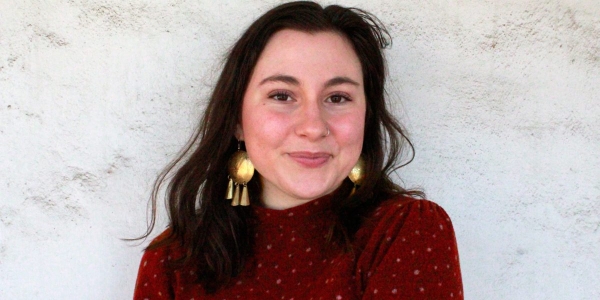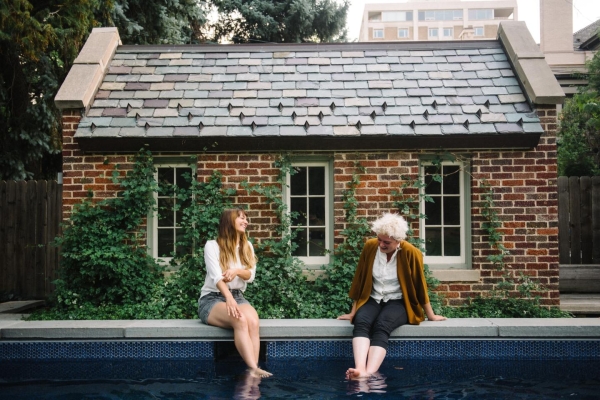
From the day she learned she could travel the world while taking care of children, Natalya Clasen dreamed of being an “Adventure Nanny.”
Adventure Nannies is a company that connects families with nannies who match even the most specific educational, cultural, extracurricular, and childcare desires. It’s as if it were a pitch for Disney’s next four-quadrant blockbuster—Indiana Jones meets Mary Poppins.
Nannies placed with families through the company have embarked on 300-mile bike trips across France and three-month train journeys across Europe and Asia; lived on Alaskan houseboats, cattle ranches, organic vineyards, biodynamic farms; and have even been contracted out for stays on private islands. All the while, they’re not only caring for their employers’ children, but enriching their lives. Families who come to Adventure Nannies for help are looking for people with a host of skills: fluency in multiple languages, expertise in particular pedagogies, practice in horseback riding and hiking, and even experience with molecular gastronomy.
“It’s really rigorous and highly competitive,” Clasen, 24, tells Fortune. “They have very high expectations of what they require from their nannies in terms of how engaged they are in the world around them, how they are as a caregiver, what their references say about them, how they’re able to present themselves, what they bring from their own unique experiences to be able to contribute as a unique caregiver and the lives of these very unique families.”
Clasen listened to the Adventure Nannies On Air podcast extensively for years to properly prepare for the interview process, latching on to the value Adventure Nannies places on candidates with unique experiences and what they’re able to bring to the caregiving table.
“We had to find people who were not your typical nanny,” says Brandy Schultz, who founded the company over a decade ago to help support her then-aspiring musician boyfriend now known to the world as Lumineers lead singer Wesley Schultz. “Families always wanted these unicorn people.”
Schultz herself has cared for kids while also taking advantage of opportunities to cliff dive in Italy, tend a farm in the south of France, and attend the insanity of Burning Man. In the early days, Schultz traveled the country to connect with and convince particularly qualified friends and friends of friends to be nannies.


Adventure Nannies founder Brandy Schultz (left) and CEO Shenandoah Davis (right).Courtesy of Adventure Nannies
Today, the company employs 17 operations staff who work to interview and place the some 20,000 nanny applications they receive each year with the 300 to 500 families the company services. The company’s CEO Shenandoah Davis says revenue has increased tenfold in the last seven years. Some of the nannies make upwards of six figures, she says, and in a lot of cases, find themselves working with “very cool families.”
The first family Clasen interviewed with chose another candidate, but that put her on the Adventure Nanny roster, and she was soon scooped up by the family she works with now—the parents are a senior director for one of the world’s top consulting firms and a consultant with an oil and gas company, and live just outside of Denver with their 11-month-old and 5-year-old.
Becoming a nanny
Clasen first heard about Adventure Nannies after graduating from Colorado State University, from a graduate research assistant who spent some time working for families. “When she told me about it, I was like, ‘I can travel the world and be a caregiver at the same time?’” she says. “That’s me, that’s me as a person.”
While working toward a double major in ethnic studies and women and gender studies, Clasen studied abroad in Sweden and traveled to more than 15 countries across several continents. She spent some time studying in Ghana as well, “all the while becoming closer connected with how children are integral in the world that we live in, and that ageism is real,” she says.
Those experiences helped inform the crux of Clasen’s approach to teaching and raising children: Treat them like full humans, validate their opinions and experiences, and introduce them to the world.
“I really strive to bring this human-ness, this other understanding to children, to help them place themselves in the world in more intentional ways. It has to do with supporting children in their self actualization process,” she says, acknowledging that class and the position of the kids and their family plays a role in how they’ll ultimately construct their identity.
“The ways in which children are marginalized is very apparent—it’s something I’ve personally experienced,” she says. “It kind of made sense that my studies along with my travel, and me wanting to heal my own inner child in a lot of ways, led me to this career.”
Her approach struck a chord with her employers, who Clasen endearingly calls her “dad-boss” and “mom-boss.” Her mom-boss tells Fortune that she felt drawn to how Clasen treats kids like they’re adults.
“She is good about respecting the feelings and opinions that kids have, and that was a breath of fresh air,” says Clasen’s mom-boss, who asked to not be identified in order to protect her family’s privacy. “A lot of times we’re just like ‘you’re the kid, you don’t know,’ but they have thoughts and feelings and if you ignore that, you’re sending a not great message that it’s okay to ignore how other people think and feel.”
They didn’t have the money to hire someone like Clasen with their first child, leaning on family nearby for support. But with a second child, between the flexibility and childcare burdens that came with the pandemic, and a new job with new responsibilities—and more money—it was time to pay for help.
A million women have left the workforce since the pandemic began, partly because childcare is so expensive. And those who kept working through COVID have experienced deteriorating mental health under the stress: 42% of working moms, according to a 2022 Harris Poll survey commissioned by CVS, have been diagnosed with anxiety and, or depression. And 33% were more likely to report their mental health had worsened in the last year. A lot of stress and responsibility is placed on working moms, and being able to afford the help and support at home requires a level of income few can afford.
The family Clasen works for has a household income of about $500,000 a year, and they spend somewhere in the realm of $10,000 a month on childcare, her mom-boss says. While she is contracted through the family and is paid by the hour, her pay is comparable to roughly $73,000 a year, Clasen says.
“It’s a huge financial commitment to be able to bring in the support that we have. And I’m willing to commit to making sure that we have that and can prioritize our relationship with our kids,” Clasen’s mom-boss says. “Still, when you look at how much money you are spending on childcare: Wow.”
A day in the life
Clasen’s bosses don’t have any train, boat, or bike adventures across foreign countries planned, so it’s not a typical Adventure Nannies set up. But raising a family and keeping a household running is its own adventure, and Clasen is more than happy to be part of their lives for the time being. She plans, however, to look for a more traditional Adventure Nannies role that involves traveling when her current contract is up.
For now, Clasen spends her days commuting 15 minutes to the family’s one-story ranch-style home in the car they provide for her (she also gets healthcare, paid time off, and other benefits). She arrives by 8 a.m. to get the kids up and ready for outdoor school and daycare. She prefers not living with the family, she says. Lines are already blurred enough working in one of the more intimate professions. “I’m privy to the lives of other people who I normally wouldn’t be, and I’m being compensated for it.”
She works a relatively normal 8 a.m. to 4:30 p.m. schedule, give or take the extracurriculars, emergencies, and unforeseen circumstances that come when mixing high-powered careers and childcare that make for a longer than expected night.
After shepherding the children to school, she spends her time on more monotonous tasks like laundry, grocery shopping, taking inventory, and making sure parts of the home are organized efficiently—duties that Clasen and her mom- and dad-boss agreed to add with a pay bump.
Three days out of the week she’ll run to pick up, change, and transport the 5-year-old to his private school for the second half of the day and pick up the 11-month-old so her mom can breastfeed her. On the days when the oldest doesn’t have his outdoor school, she tailors activities for him, usually museums and farm visits and art projects, just trying to “cultivate a deeper sense of identity and understanding and to find what excites him,” Clasen says.
“No day is ever the same,” she adds, but they’ve fallen into a good routine, and it’s a pretty flexible and collaborative process.
“There’s the understanding that, while we might be the employer, we don’t have all the answers,” Clasen’s boss says. “She is a valuable resource who has a ton of insight and opinions and training that we don’t have.”
She knows they could have gone elsewhere for help; found cheaper childcare, but they put a lot of trust in Clasen and the quality of nannies Adventure Nannies connects families with.
“It falls heavily on moms to figure out how to manage everything,” Clasen’s mom-boss says, adding that she wishes nannies were more accessible rather than a luxury. “We need to remove the stigma around leaning on help because you just can’t do everything, but Natalya makes it so that we can do a lot of everything.”
Correction: An earlier version of this article misspelled Brandy Schultz’s husband’s name, Wesley Schultz.






